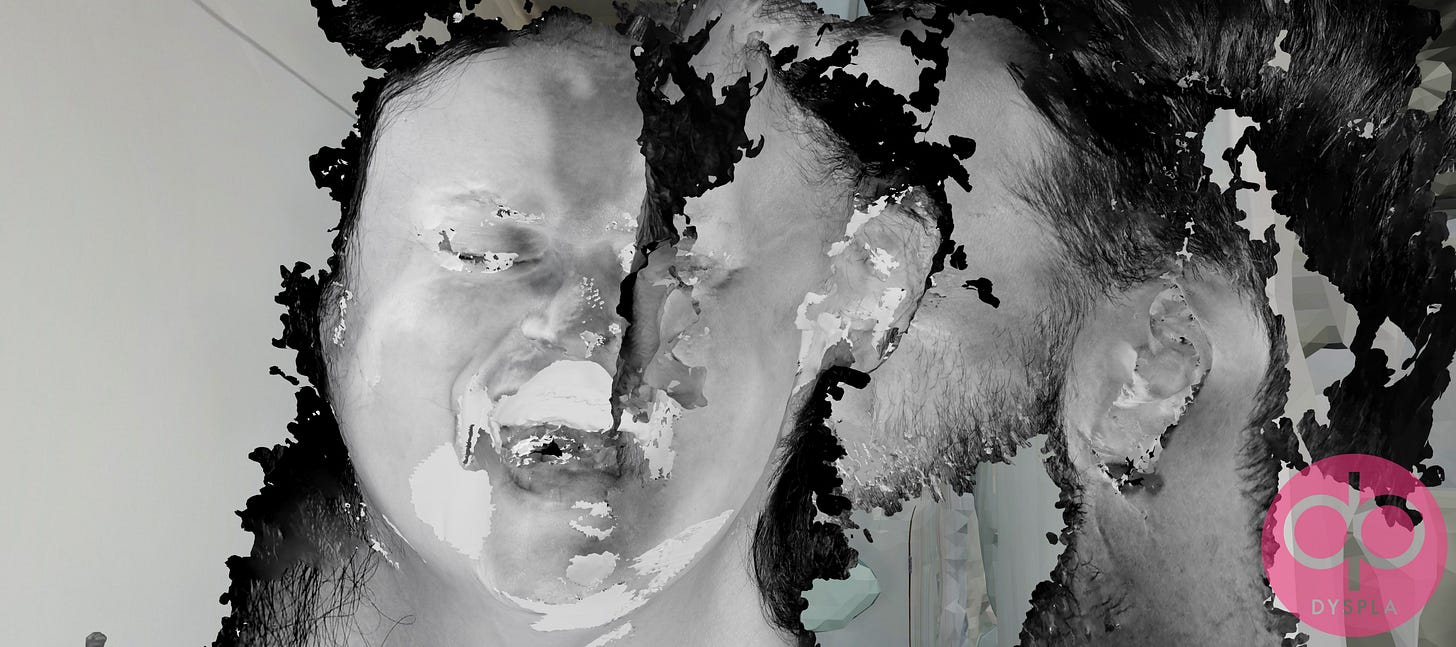'ABORT THE INCONVENIENT' ............Gallery Takeover .............................. @ The International Body of Art................ ...Battersea Square, South London. ..........Made by DYSPLA
Artist Review
ABORT THE INCONVENIENT explores the concept of inconvenient humans and tackles taboos on who is deemed ‘unnecessary’ within our western society. The exhibition premiered in May 2024, as part of the International Body of Art, (IBA) Gallery Takeover.
The new pop-up exhibition came about after DYSPLA won an Open Call with IBA, an new organisation that aims to revolutionise the art world by making it more accessible to emerging talents. They were looking for artists to curate a 6 day pop-up exhibition in South London, as part of their gallery take-over pilot scheme.
DYSPLA, a London based neurodivergent art collective was selected because of their prolific iconography. IBA were specifically looking for finished artwork and DYSPLA’s robust portfolio of high end digital photography and poetic video art was selected.

The opportunity for DYSPLA to exhibit their recent and mostly unseen collection, provided the physical space to contextualise their practice to new audiences. This opportunity is rare, priceless and exactly the kind of access to gallery space that early career talent desperately needs.
The collection, made up of four individual art projects, intergenerational, WOT, abort & fear, all approach the intersections of class and disability and highlight a unique response to the disparity of life’s opportunities within capitalist structures.

The exhibition was far from anything similar programmed under IBA who had this to say about DYSPLA:
International Body of Art are beyond delighted to work with DYSPLA and their innovative, exciting and necessary work. Their exhibition, ‘Abort the Inconvenient’, managed to achieve the rare symbiosis between provocation and aggression, whilst maintaining openness, inquisition, and care. A fusion that is vital to actively political artwork. Rather than prescribing any sense of moralistic hierarchy, DYSPLA actively interrogates their own internalized bias, and provided a welcoming space for their audience to do the same.
April Kelly, Curator @ IBA - International Body of Art
The collection, though not made specifically for the gallery, came together conceptually due to the overt political nature of each individual artwork, which echoed the unipolar politics that systemically subtract the underclasses as an ‘economic loss.’ Hence the protagonists in these theatrical pieces, are all deemed ‘unnecessary’ and replaceable under superior technocratic selection whom favour the perfection of technology over humanity.

These ideas were explored further each day via DYSPLA’s signature performative workshops DYSPLA_fear. Willing members of the audience were interviewed about their inner fears and experiences of self censorship, while being photographed in 3D with the intention of including the portraits in future DYSPLA exhibitions.

Audience members publicly confessed to camera, things they would not speak about to friends, family or colleagues. Whether it was about childhood trauma, the fear of losing their job because of political views, secrets about their sexuality, paranoia about government control, concerns about immigration, anxiety over artificial intelligence or news about their recent diagnosis and how their disability is impacting their identity - DYSPLA_fear highlighted peoples desperate need to confess as an act of catharsis.
Art is therapeutic afterall:
“{…} used to reduce conflicts and distress, improve cognitive functions, foster self-esteem, and build emotional resilience and social skills. It engages the mind, body, and spirit in ways that are distinct…”.
The art gallery experience is therefore a social service to some extent, because most people consume art for free and for many consider it both therapeutic as well as educational.
But art is also described as a luxury because only rich people can afford to make it and/or buy it. That is why the IBA is so important because DYSPLA and artists like DYSPLA would never be invited to have their own exhibition so early in their careers.
Art has lots of benefits for both the maker and the audience, but is it necessary?
While the exhibition was questioning how the eilts value the working classes, the immigrants, the refugees, the disabled, and the underclass…DYSPLA was also questioning their own necessity. It is far too easy for artists to value themselves and their work by profit margins and while we did not sale any art or sell out the exhibition we did feel the impact of the work on our audiences. Many of whom were new to DYSPLA and commented on how they had not seen art like ours before.
The exhibition also helped begin dialogues with people we would not normal converse with due to the location of the Gallery and the walkin clientele around posh Baeatese Square. While DYSPLA is further to the Left of political discourse, the exhibition helped us to all find some common ground, which is saying a lot in such a polarized society.





